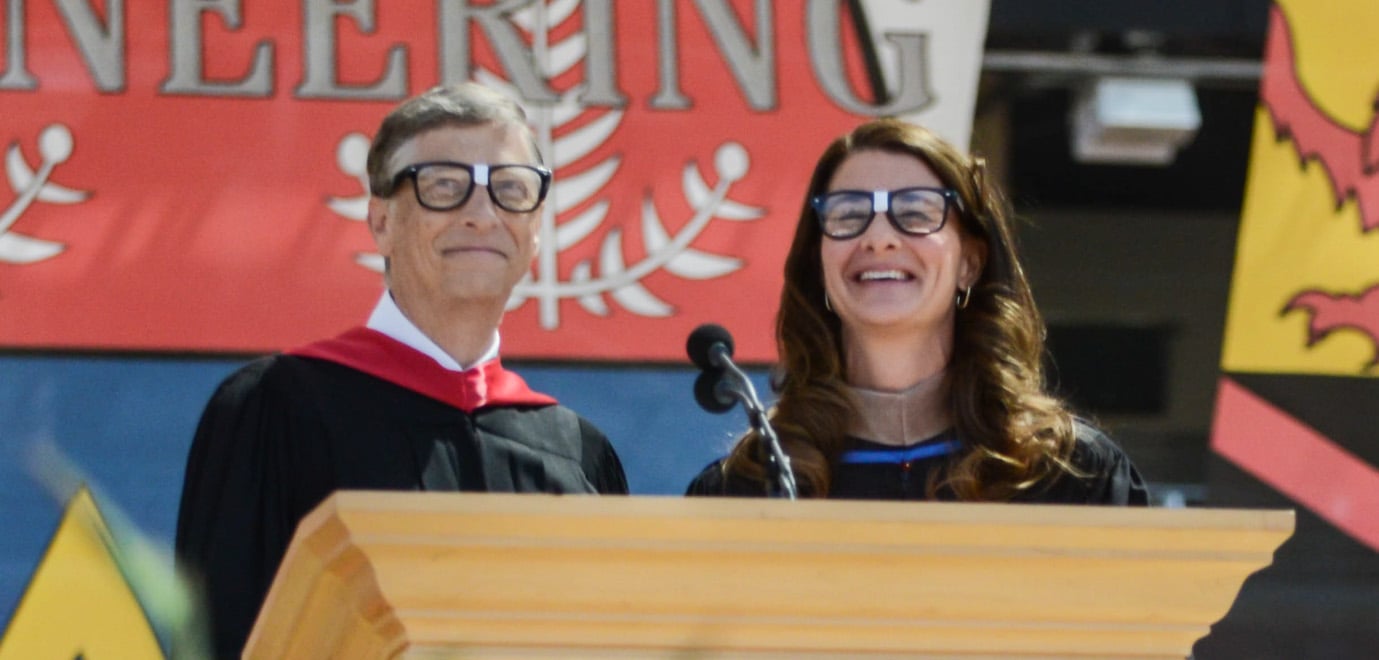Social impact — as partially introduced in Bill and Melinda Gates’ commencement address to the Class of 2014 — must be a priority at Stanford. As it stands, there is a substantial void in campus culture when it comes to seriously contemplating and celebrating public service.
“In the course of your lives, without any plan on your part, you’ll come to see suffering that will break your heart,” the Gates declared. “When it happens, and it will, don’t turn away from it; turn toward it. That is the moment when change is born.”
At a university renowned for innovation and changing the world, social impact does get attention: The opportunities available are almost too long to list.
But despite the tremendous work of many students in social good and bountiful opportunities on the Farm, does a systemic problem with the current campus culture and its attitude towards public service still remain? This Board thinks so. We have become increasingly concerned with the narrow, limited definition of service as an alternative and therefore somewhat inferior option to lucrative career paths such as those in consulting and technology. For example, School of Engineering graduates in the Class of 2011 received an average starting salary of $72,148 and 2012-2013 graduates in Electrical Engineering and Computer Science, more specifically, earned a starting salary of $96,000. In contrast, graduates from the School of Humanities and Sciences received an average starting salary of $54,951, the CDC found. The issue is not the financial returns associated with the industries, but that the relatively better-paid fields are not as strongly associated with public service.
We believe, however, that changing the campus culture when it comes to public service encompasses something far deeper than, for example, having more students join nonprofits after graduation. After all, Teach for America, as recently as 2013, was the fourth-highest employer of recent Stanford graduates. This Board believes that changing the statistics on career paths should not be the end goal of changing the culture towards public service on campus. Alternatively, we hope to see public service become a greater part of more students’ Stanford experience and become, above all, the basis of an empathetic mindset both universally applicable and essential to the future.
Stanford should push towards a more inclusive notion of addressing pressing problems in the world, one that redefines and reframes the idea of public service as an important educational component and a key aspect of any future career.
This question does appear to be on the University’s radar as the official senior survey — required for all seniors as part of the application to graduate — asks students to rate their satisfaction with the “Availability of courses/academic experiences with integrated public service opportunities.”
Clearly, the University recognizes the importance of integrating public service into traditional academic avenues and several opportunities to synthesize service with their academics exist, including CS 192: Programming Service Project, Entrepreneurial Design for Extreme Affordability at the Institute for Design and Urban Studies 133: Social Entrepreneurship Collaboratory.
But the fact remains that there is more work to be done in changing the mindset on campus toward public service. Encouraging more student initiatives in integrating academic interests with a passion for effecting change such as the new CS+Social Good student organization should be a focus. In addition, this Board believes that Stanford can facilitate and foster a love of service through service in undergraduates by increasing opportunities for students to engage with these issues early on in their academic careers. One way to do this would be by adding an optional “Service in the Major” course to undergraduate programs.
At the end of the day, Stanford students will continue to pursue particular fields of study and eventually careers that they find attractive. We are by no means calling on students to shift their fundamental goals or future plans in the name of an abstract idea like “social impact.” Instead, we are simply asking members of the Stanford community to lead a different kind of cultural shift, one that brings questions of service into the forefront of students’ consciousness and makes public service exciting and desirable.
Stanford is no stranger to turning the seemingly nerdy and esoteric into something cool.
In a similar fashion to how popular courses such as CS106A are practically de rigueur without actually being required, we envision a Stanford where students participate in seminars on public service and actively engage in questioning how social good and an ethical life will fit with their future plans; we envision a Stanford where public service can be broadly construed as a fundamental aspect of any career. There are all sorts of ways to contribute to the public outside of the public sector and nonprofits, and Stanford should help us find the ways that fit our individual paths.
***
In his essay, “The Drowning Child and the Expanded Circle” the philosopher Peter Singer writes that: “Many will say that it is naive to believe that people could shift from a life based on consumption, or on getting on top of the corporate ladder, to one that is more ethical in its fundamental direction. But such a shift would answer a palpable need. Today the assertion that life is meaningless no longer comes from existentialist philosophers who treat it as a shocking discovery: it comes from bored adolescents for whom it is a truism.”
Finding answers about our role in society and searching for the sense of fulfillment Singer writes of should be a central goal of an undergraduate education. Fostering a campus culture where more students are excited to serve others, in our view, is an essential aspect of that. We, as members of the Stanford community, have the responsibility to make this happen.
Contact the Editorial Board at [email protected].
